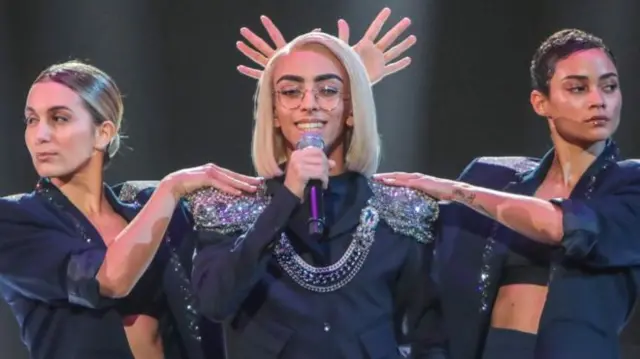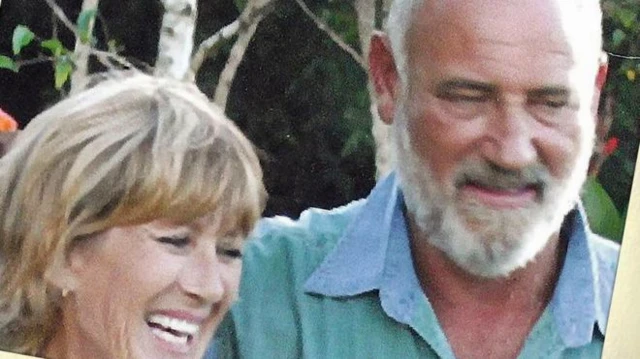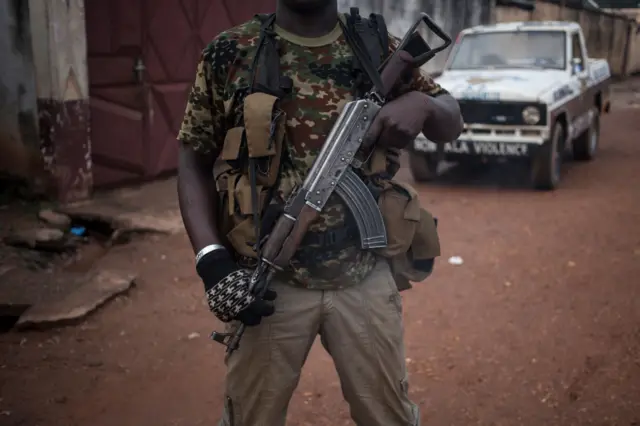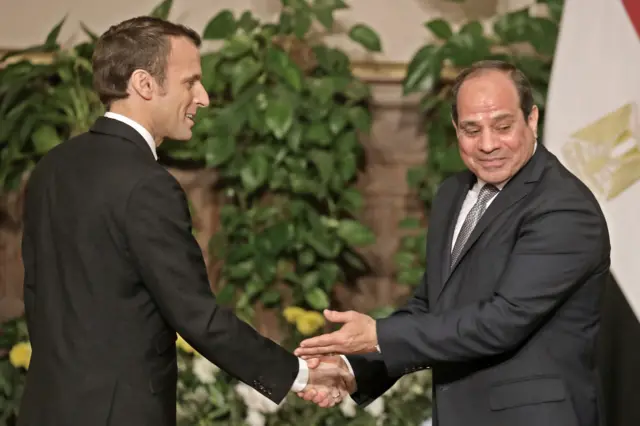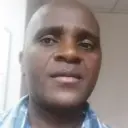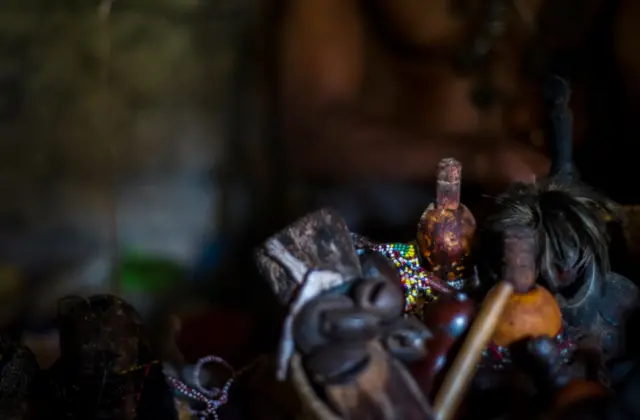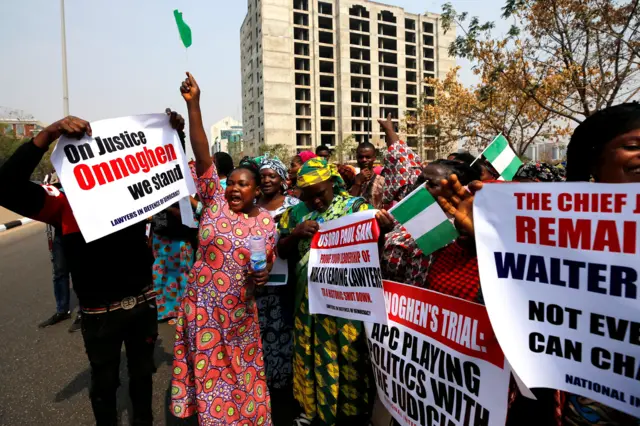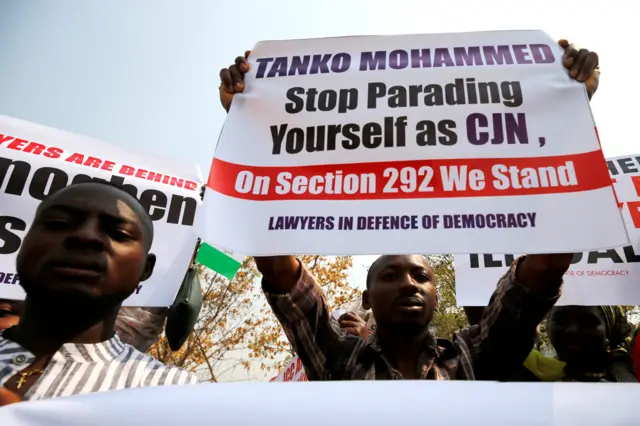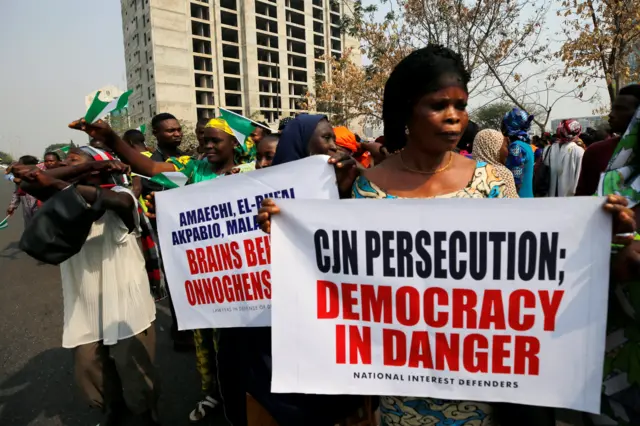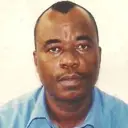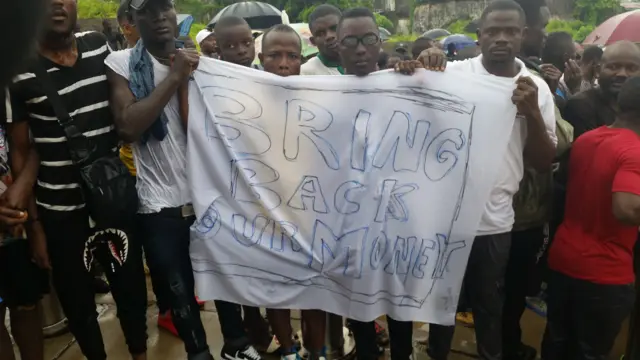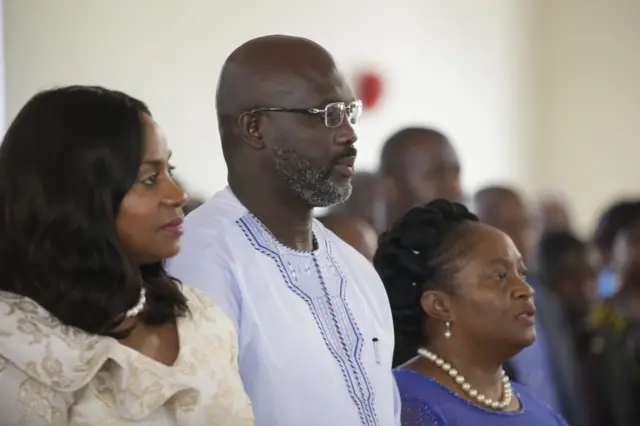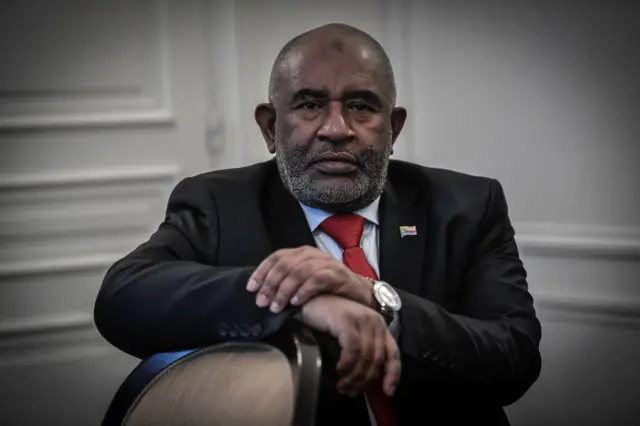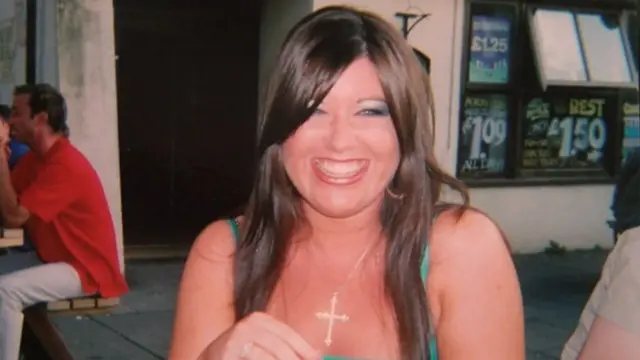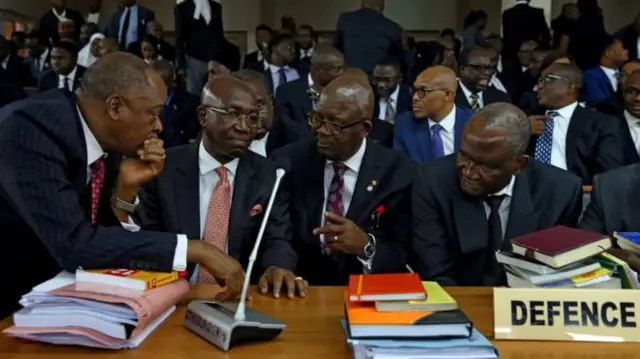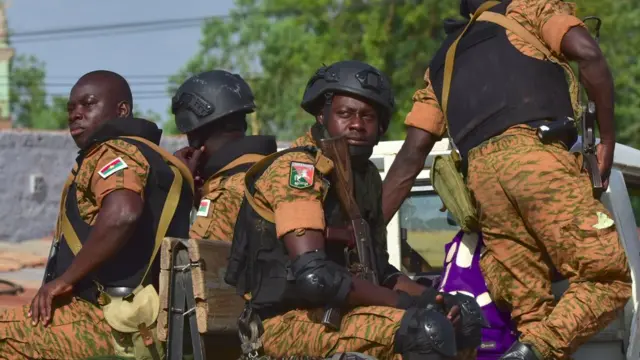Sudan medic: Protesters are getting braverpublished at 17:10 GMT 28 January 2019
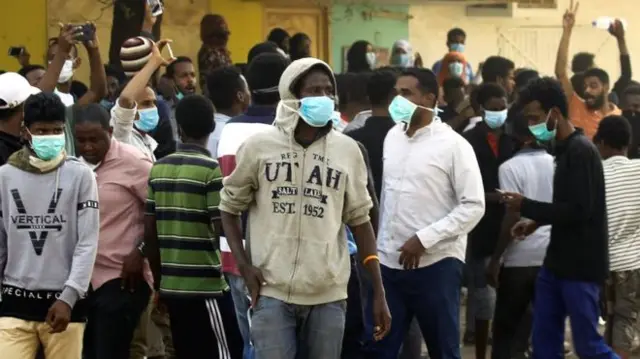 Image source, Reuters
Image source, ReutersMedic teams hand out masks to guard against tear gas
A medic in Sudan's capital, Khartoum, tells BBC Africa Live what the protests - that started last month over cuts to bread and fuel subsidies and have grown into calls for the end President Omar al-Bashir’s rule - have been like over the last week:
The brutality and hostility of the security forces towards the protests is making people braver and braver - it feels like an unstoppable momentum for change as more people join them.
Over the last week, some opposition leaders, including the head of Umma Party, Sadiq al-Mahdi, who earlier in January had described the uprising as immature, encouraged their followers to join in. And at Friday prayers, a lot of religious leaders known to have supported the regime in the past urged people to stand up for their rights.
On Sunday, the Sudanese Professionals Association (SPA), which represents health workers, lawyers, teachers and others and has become the organiser of the demonstrations, posted that protests would take place in most residential areas of the capital.
The head of the security forces had said if demonstrations were kept off the main streets, they would face no problems. But the armed forces camped out in residential neighbourhoods overnight to stop the gatherings, so the SPA had to quickly organise other places through social networks and more than 30 protests took place in the end.
The people faced the extensive use of tear gas, and live ammunition was fired into the air. Thankfully no-one was injured though more than 100 people were arrested.
Last Thursday felt like the greatest turning point.
The authorities, perhaps influenced by a US statement condemning the handling of the protests, allowed the huge crowds to march from the three cities of Khartoum state towards the presidential palace.
Trouble began early in the day at an unofficial gathering when students at a private college in Khartoum began protesting.
The Elrazi College authorities forced them off campus – and outside the security forces were waiting to arrest them.
Medical student Mahjob Eltag was captured by the security forces and was beaten with such brutality that he lost his consciousness. He was pronounced dead by the time he was taken to hospital and the authorities have refused to comment on his death.
Mourners outside his family’s house were stormed and the security forces refused to allow people to assemble there.
As the big marches progressed at around 16:00 local time the security forces began using live ammunition as if they were in a war zone, not caring about civilians – even those not protesting.
Abdulazim Abu Bakr, a well-known media graduate from East Nile University and early joiner of the protests, tried to remonstrate with those firing live rounds, saying it was too dangerous – but footage taken by those with him show he was shot dead at point-blank range in the chest.
Funding for this uprising - for things like medical supplies - is being organised by community youth activists with connections inside and outside the country and by other small initiatives.
The doctors have organised teams to go to each gathering.
They hand out masks to guard against tear gas and can give basic first aid until a doctor arrives.
We genuinely believe this is a golden opportunity to change the system as now many people from different parts of Sudanese society are joining in.
